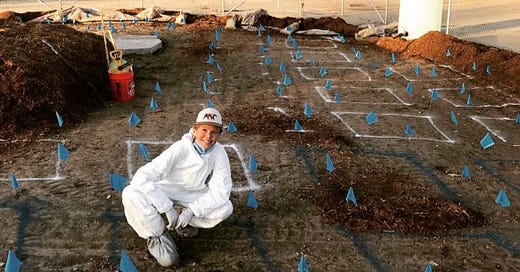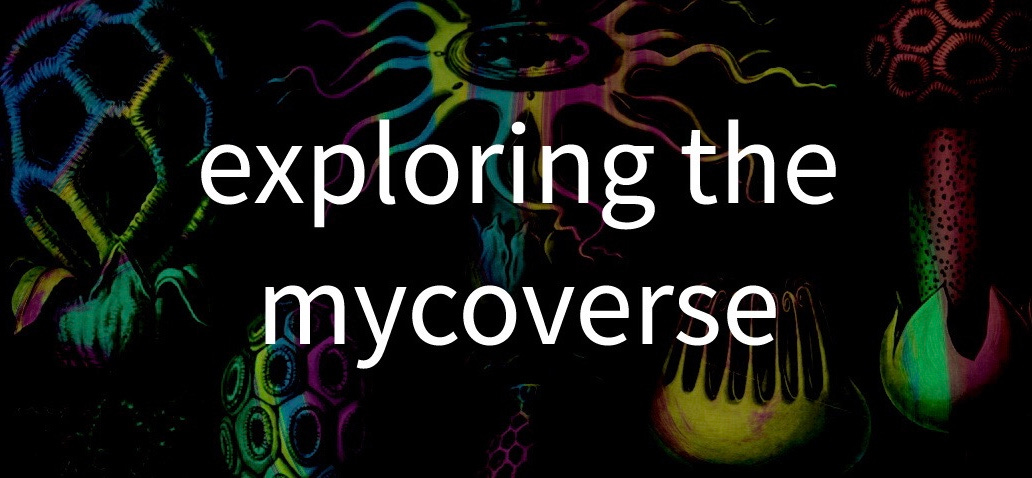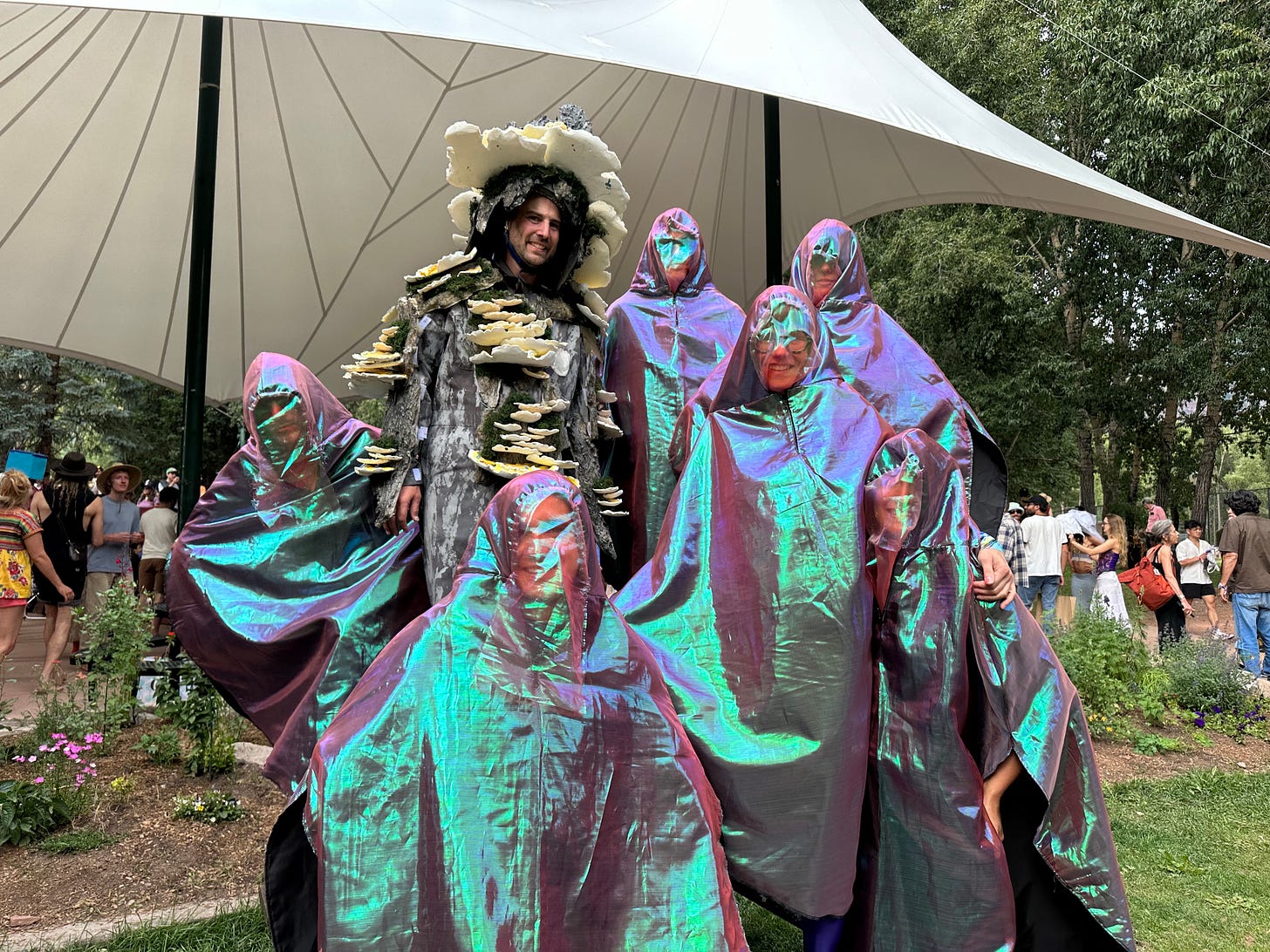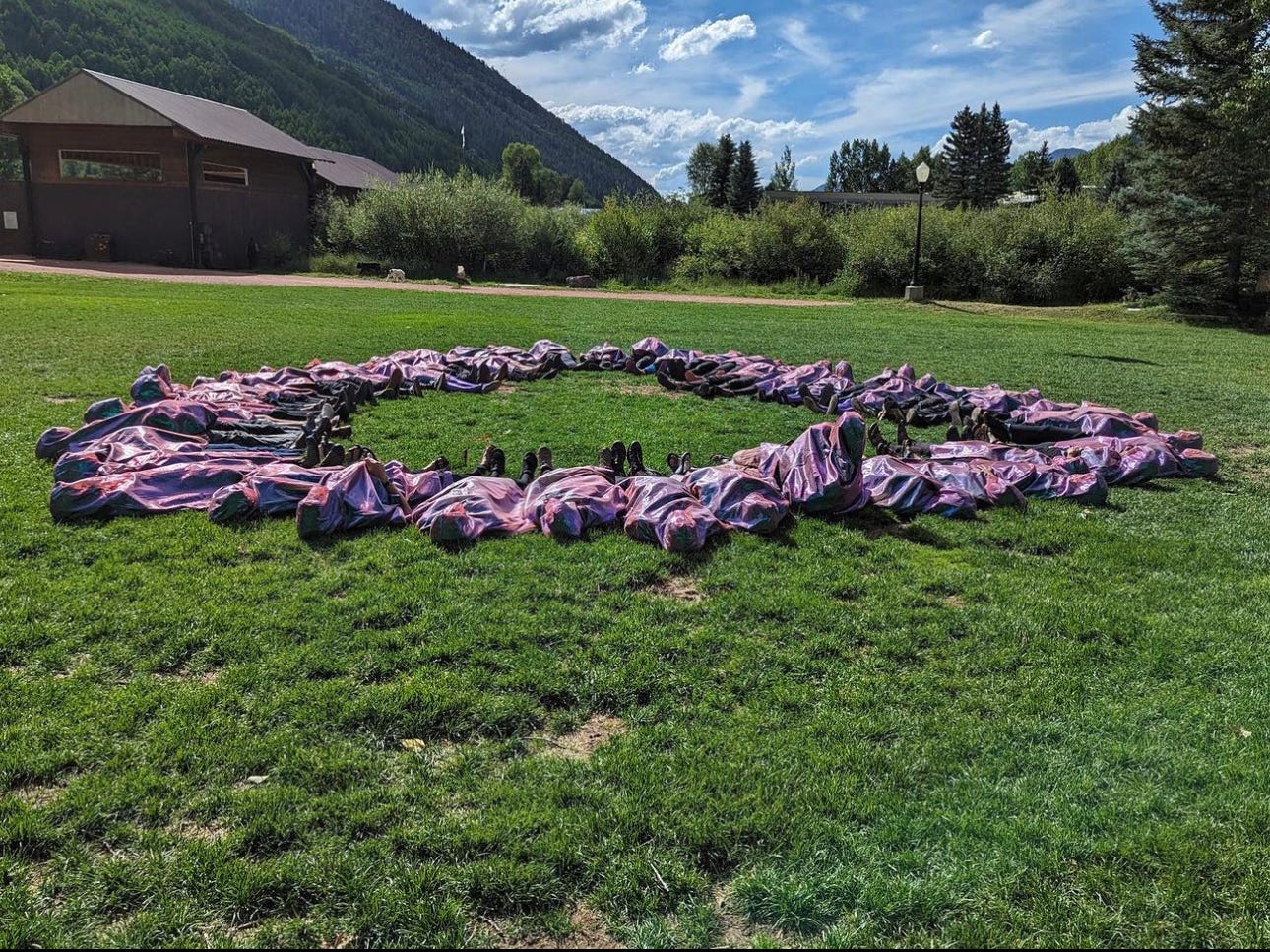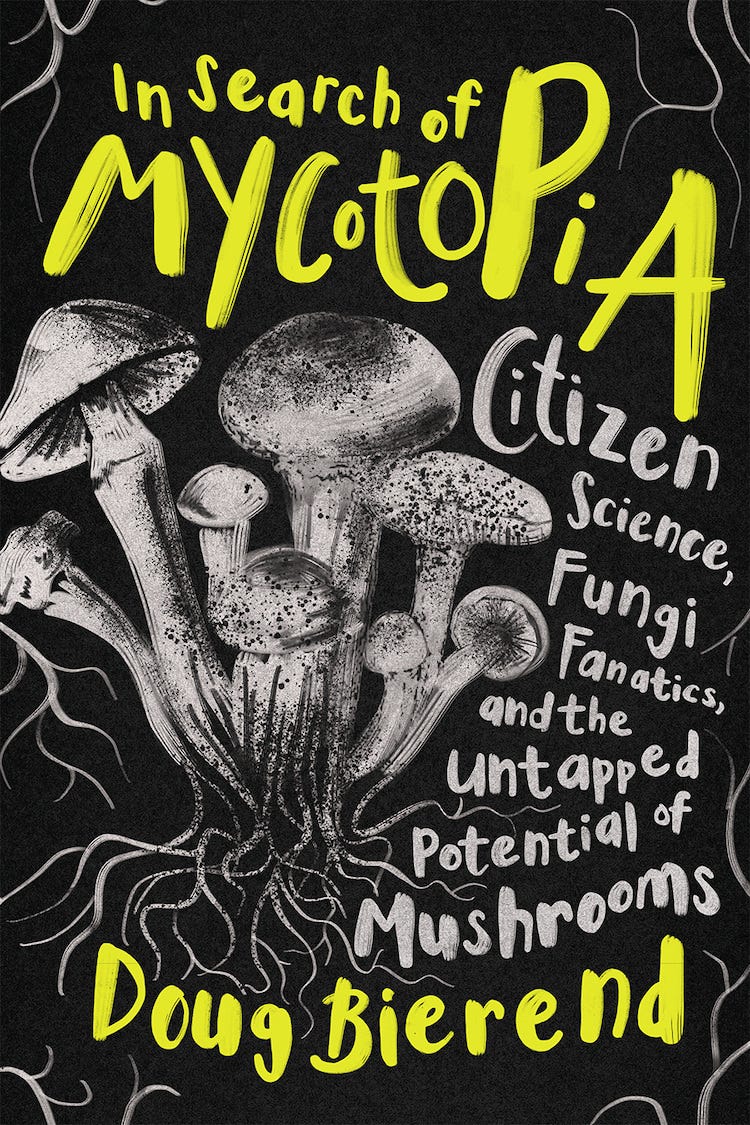Second Year Mycoverse Anniversary Celebration with Danielle Stevenson
Join us in celebrating two years of intentionally creating community with fungi in Los Angeles.
Dear Fellow Myconauts,
Next up we are celebrating our 2nd Year Anniversary with a Potluck and special guest, Danielle Stevenson on Friday, September 1st!
Due to the storm this week, Aaron’s return from the Telluride Mushroom Festival was delayed so we will be rescheduling our In Search of Mycotopia finale discussion to Monday, September 11th.
Keep on reading to check out another one of Miranda’s ever so well done, Mycoverse recaps from June on our queer mycology and Lynn Margulis discussions.
Here’s a glimpse of the Telluride Mushroom Festival, this year we dressed up as a Psilocybe cubensis Spore Cloud! Big thanks to Jessica Langley, Ben Kinsley, and Riita Ikonen for including me in this fun community art project.
From top left to right, Anonymous Spore, Hamilton Pevec – dressed as a tree full of chicken of the woods, Ben Kinsley, Jessica Langley, Riita Ikonen, Anonymous Spore, Aaron Tupac (bottom left). There were fifty spores in total who inoculated the festival’s parade this year. We ended the parade in a large spore print!
Exploring the Mycoverse 2nd Year Anniversary Potluck Celebration with Danielle Stevenson
Friday, September 1st, 7pm @ Arlington Garden, Pasadena, CA
Join us in celebrating two years of creating community with fungi, fellow myconauts, and fungi curious folks! We have a very special guest, local mycologicist Danielle Stevenson, who is leading (quite literally) groundbreaking research in phyto-myco-remediation healing soils of heavy metal polution. She will share her extensive experience and journeys through the many worlds of mycology, from having her own DIY business to being a Radical Mycologist to being to a mycologist in academia.
About our special guest:
Danielle Stevenson is an applied scientist, mycologist and environmental problem-solver who works with soils, fungi, plants and people to address wastes and pollution in creative and circular ways. Currently a PhD candidate in Environmental Toxicology at the University of California Riverside where she studies sustainable remediation of brownfields with fungi and plants. She also founded and runs D.I.Y. Fungi (est. 2012) for research, education and action around fungal food, medicine, waste management and remediation, and Healing City Soils (est. 2015) with the Compost Education Centre to provide soil metal testing, resources, and community bioremediation for people growing food. She is involved in many projects supporting regeneration o f lands and waters, environmental education and community-capacity building.
Learn more about her work here:
https://www.danielle-stevenson.com/
https://phyto-myco-remediation.ucr.edu/
https://diyfungi.blog/
In Search of Mycotopia – Who Speaks for the Mushroom
(Part II )
Monday, September 11th, 7pm @ Arlington Garden, Pasadena, CA
In part 2 of 2 discussions, we will be discussing the last half of the book in preparation for the following week's discussion with one of the mycologists featured in Mycotopia, Danielle Stevenson. In this last half of the book we learn about the insporation behind creating the "mycelium underground" of myco-scenes across the country as well as how to get involved with fungi, and how to be in better relationship with the more than human world around us (e.g. via conservation, applied mycology, in community with intersectional mycology movements discussed).
Before the discussion, we invite you to:
Read chapters 7-12 (roughly 140 pages)
Previously in the Mycoverse… By Miranda Van Iderstine
Symbiotic Earth: How Lynn Margulis Rocked the Boat and Started a Scientific Revolution (dir. John Feldman, 2017) and Queer Theory for Lichens by David Griffiths
Mondays, June 12 and 26, 2023
The “you” that is reading this is over 50% non-human by cell and over 300% non-human by gene; “you” are consortia, an ecosystem, a planet, multitudes living in long-term concert, never ever alone. “There is not any clean and pure space of transcendent individuality, even in the womb,” Queer Theory for Lichens assures us.
Your arrangement is an example of symbiosis, a relationship between organisms of different species that live together and rely on each other without speaking the same language, “the intimacy of strangers,” according to revolutionary biologist Lynn Margulis.
Margulis championed the idea that partnerships like these are what drive evolution. She argued that, approximately two billion years ago, our single-celled world welcomed multicellular life after one bacteria ate another and the two continued on living together, because it’s better.
When Margulis first published work on this theory (called symbiogenesis) in 1967, she was deemed a heretic by neo-Darwinists, who center competition (rather than co-living) as the primary mechanism of evolutionary change and DNA (rather than cells) as its agents.
Margulis dismissed neo-Darwinism as “a minor twentieth-century religious sect” for people who “wallow in [a] zoological, capitalistic, competitive cost-benefit interpretation of Darwin—having mistaken him.”
Margulis has been vindicated, but neo-Darwinist fantasies persist despite remaining largely unsubstantiated.
Embedded in a microbial world, there is no discrete “I” or “other” at any scale, but we are taught not to see interdependence within or beyond our queer, multi-species selves.
The social, political, and economic corollaries of our willful ignorance underwrite white supremacy, ableism, colonialism, genocide, capitalism, eugenics, heteronormativity, the criminalization of people, and the “delegitimization [of] bodies, practices, and communities not arranged normatively,” writes David Griffiths. Reductionism deprives us of the opportunity to consider emergent properties and empowers suicidal growth models of extraction.
Disease is the state where diversity is lost. Life is bacteria in community.
Looking sporeward,
Aaron

